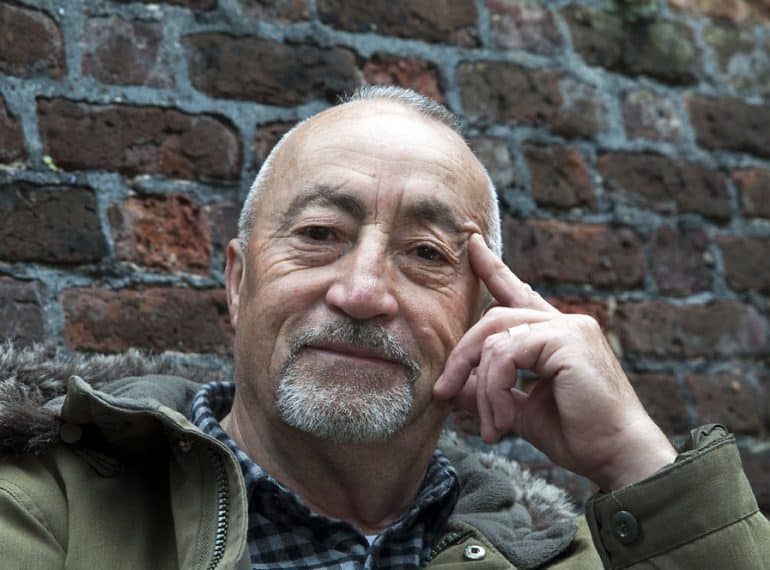
In a colourful life, triple BAFTA-nominated Martyn Day has enjoyed an illustrious television career that ranged from working on much-loved children’s programmes to making documentaries in locations as disparate as the Arctic and India.
Martyn (OE 1956–1963) has socialised with the Rolling Stones’ Keith Richards. He has played at Glastonbury.
And, in 1965, in one never-to-be-forgotten evening, his mod band supported The Who – then just on the brink of international stardom.
Yet before all that, it was two teachers at QE who inspired this artistically inclined Leicester House pupil and helped set him on to his preferred path in life – although not everyone at the School was so supportive of his ambitions, as he recalls.
“The QE that I went to was very different to the School today. Under Ernest Jenkins’s rather stuffy headship, the place was not geared up for us off-beat souls who did not want to become accountants, lawyers or colonial administrators. I was told that I was not suitable for university (i.e. Oxford or Cambridge) but ‘Not to worry!’ There was an ‘interesting future’ for me in: a) the City, b) the Armed Services or c) the Church. This was of little use as I wanted to work in TV.
“Fortunately, there were two teachers who helped me out: ‘Jerry’ Reid, my English teacher, who introduced me to a world of literature way beyond the School curriculum, and Kaye Townsend, Maths, who heard my complaint and introduced me to a film production accountant. Maybe not lunch with Stanley Kubrick, but a welcome step in the right direction.
“I left QE in summer 1963, just as the Beatles released She Loves You, and started work as a wages clerk at MGM Studios in Borehamwood.”
Alongside his career, he was also regularly taking to the stage with a beat group called The Trekkas, based in Welwyn Garden City. “We were only an amateur band but good enough to be regularly booked to support established acts like Manfred Mann, Amen Corner, Rod Stewart and Jeff Beck. We even got to play alongside Elton John when he was plain Reg Dwight.”
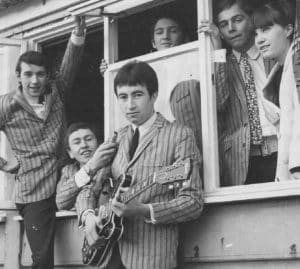 But the most memorable night of all came on 17th June 1965, when The Trekkas (pictured here at around the same date) had been booked to play support at Bowes Lyon House in Stevenage. “What we didn’t know was the name of the band we were supporting. All we knew was they came from West London.
But the most memorable night of all came on 17th June 1965, when The Trekkas (pictured here at around the same date) had been booked to play support at Bowes Lyon House in Stevenage. “What we didn’t know was the name of the band we were supporting. All we knew was they came from West London.
“We got there about 6.00pm to set up and were surprised to see that the other band – the unknown ‘stars’ – had already been into the hall, set up their own equipment and left. There was a drum kit and two huge amplifiers, bigger than anything that we had seen before.
“Everything was battered. The drum kit looked like it had been dropped off the back of a lorry. One of the amps, the one on the right, was missing the cloth covering the speakers. This had been replaced by a union flag. The gear looked expensive but it had been trashed.”
As a local band with many fans in the audience, Martyn and his bandmates were initially confident that “we’d blow them off the stage” – until the main act [The Who] actually walked on.
“The guys coming on after us weren’t neat at all. There were four of them and they didn’t bother with matching outfits like most other bands at the time…One [Keith Moon] wore a t-shirt with an RAF roundel on the front. Another, the singer [Roger Daltrey], had an arrow point-striped shirt. The bass player [John Entwhistle] was wearing a jacket covered with military insignia. The guitar player [Pete Townshend], carrying a beaten-up Rickenbacker, had a jacket made from a Union Jack.
“There was definitely something about them – a kind of ‘flash’ arrogance perhaps – but they were certainly cooler than us, sharper than us, angrier than us. In 1965 there was a word for people like them. They were ‘faces’ – out in front setting the trend.
“They didn’t bother with any of that ‘Hello, Good Evening’ nonsense. They just plugged in their guitars, looked at each other and let rip.
“They didn’t play their music, they attacked it. The volume was incredible. The bass line thudded against you, rattling your entrails. The drummer, RAF roundel man [Keith Moon], ignored most of the percussion niceties, and set out to beat his kit to death. On top of all this turmoil the guitarist in his Union Jack jacket [Pete Townshend] was chopping and hacking at his guitar, his arm windmilling in the air and slashing down to punch out chords.
“This wasn’t the usual ‘beat group’ crisp solos and chanky-chank rhythm. This was six-string Armageddon with every frustration they had ever felt compressed into three-minute musical hand grenades.”
“…And just at the point when it couldn’t get any crazier, it suddenly did. The guitarist started bayoneting his amplifier with his guitar, smashing the neck against the speaker board. Every rule about caring for your instrument disappeared in a screeching, splintering, crashing, cracking tsunami of sound. Then the drums went too, kicked forward and over off the stage. Tumbling, clanging into the audience. No ‘Thanks and goodbyes’. No “Goodnights and see you agains’. Just noise and fury and destruction – and then they were gone, leaving us, the audience and the world of pop music changed forever.”
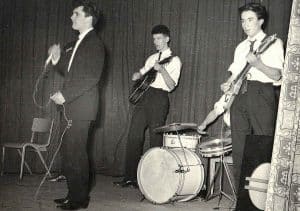 The photo here shows a gig Martyn played at Goffs Oak while still at QE. He is pictured with fellow Elizabethan colleague Guy Hewlett (1954-1962), backing Tommy Moeller. Moeller later became the lead singer with Unit 4 plus 2, who had a No. 1 hit with Concrete and Clay.
The photo here shows a gig Martyn played at Goffs Oak while still at QE. He is pictured with fellow Elizabethan colleague Guy Hewlett (1954-1962), backing Tommy Moeller. Moeller later became the lead singer with Unit 4 plus 2, who had a No. 1 hit with Concrete and Clay.
Away from his music, Martyn’s television career was progressing well, as over the years he moved into special effects and then trained as a film editor, working in this era on the second and third series of Dr Who and, in 1973, as a researcher on the children’s TV magazine, Magpie.
By 1982, Martyn was a producer at Granada TV, where he worked until the early 1990s, finishing his period there as a writer/producer/director.
He spent two years in Macedonia producing a teen drama written to reduce ethnic tension to prevent the war in Kosovo spreading south (“It did – and it didn’t!”). He retired in 2010 after producing two series of the BAFTA-nominated game show, Jungle Run.
Reflecting on this career, Martyn says: “I have researched, set up and filmed fascinating stories all over the world, from the Giant Pingo [a mound of earth-covered ice] in Tuktoyaktuk in the Canadian High Arctic to the three-eyed Tuatara ‘lizard’ in the Cook Straits in New Zealand. On the way I have also met some really interesting people – the Waorani in the Ecuadorean rain forest and the Garos who live on the border between Burma and India are just two. I’ve also ridden an elephant in the wettest place on earth – Cherrapunji in Meghalaya, India – faced down a very miffed alligator in the Florida swamps and ‘borrowed’ a giant tortoise in Mauritius.”
Today Martyn, who lives in Twickenham, retains his keen interest in music, playing bass guitar in a band performing 1950s rock’n’roll. He writes a regular local history strand for the St Margarets Community Newsletter and St Margarets Magazine. He is also a warranted Cub Scout Leader.
In October, he was among the OE guests who came to the School to pass on their expertise at the Year 11 Careers Convention.
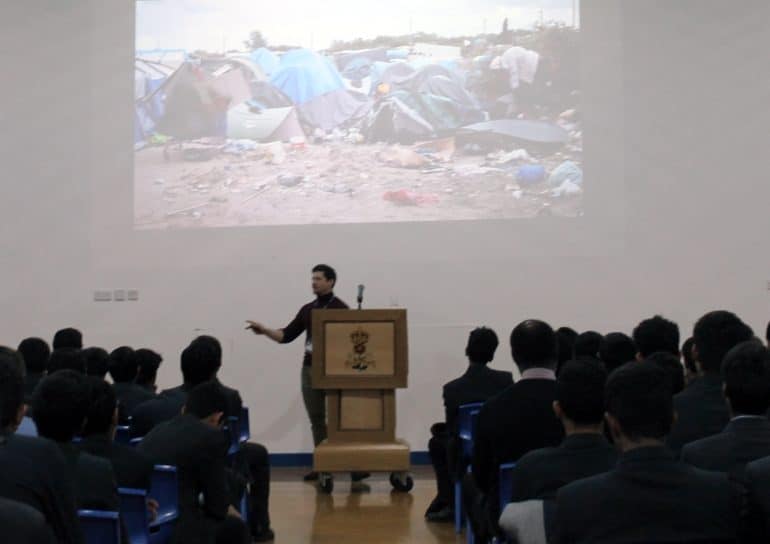
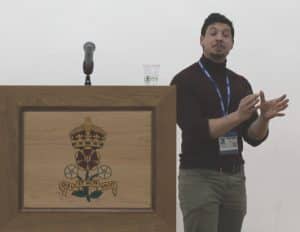 Nick (OE 2001–2008) co-founded Refugee Education Chios, which provides education, support and training for teenagers and young adults living on the Greek island of Chios, which became a de facto detention centre after the 2016 EU-Turkey agreement.
Nick (OE 2001–2008) co-founded Refugee Education Chios, which provides education, support and training for teenagers and young adults living on the Greek island of Chios, which became a de facto detention centre after the 2016 EU-Turkey agreement. Nick, of Stanmore, has a history of involvement in humanitarian projects. Shortly after leaving QE, he spent time at the Sri Sathya Sai School – a village school in Kerala, India, which QE has supported since 2002. And, while he was reading for the Politics, Psychology and Sociology Tripos at Cambridge, he undertook research for the Grameen Bank, the Nobel Prize-winning microfinance organisation based in Bangladesh which works to help the poor.
Nick, of Stanmore, has a history of involvement in humanitarian projects. Shortly after leaving QE, he spent time at the Sri Sathya Sai School – a village school in Kerala, India, which QE has supported since 2002. And, while he was reading for the Politics, Psychology and Sociology Tripos at Cambridge, he undertook research for the Grameen Bank, the Nobel Prize-winning microfinance organisation based in Bangladesh which works to help the poor.
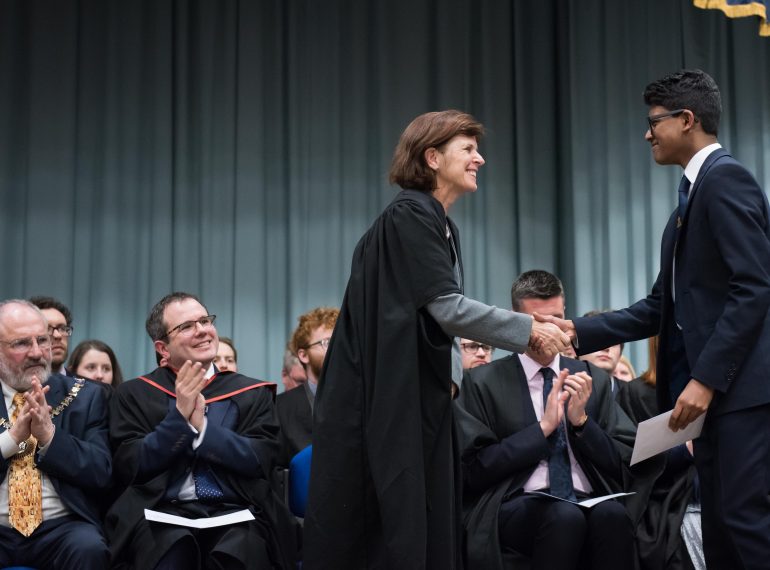
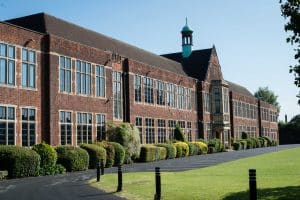 Headmaster Neil Enright said: “At Queen Elizabeth’s School, we are proud of our long-term success as an entirely meritocratic institution, and it is noteworthy that many of our leavers, such as George, who go on to Oxford and Cambridge are from modest backgrounds, often representing the first generation of their families to go into higher education. Nevertheless, we have made it one of our key priorities to do even more to ensure fair access and we are currently developing our outreach activities accordingly.”
Headmaster Neil Enright said: “At Queen Elizabeth’s School, we are proud of our long-term success as an entirely meritocratic institution, and it is noteworthy that many of our leavers, such as George, who go on to Oxford and Cambridge are from modest backgrounds, often representing the first generation of their families to go into higher education. Nevertheless, we have made it one of our key priorities to do even more to ensure fair access and we are currently developing our outreach activities accordingly.”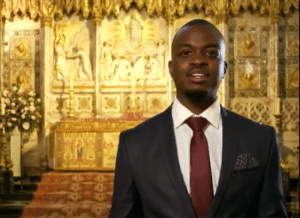 He told them how his own time as an undergraduate had changed him: “When I went to Cambridge, I looked back at my community through binoculars and I could see it for what it is. That wouldn’t have been possible if I’d stayed in the environment. I would have become either consumed by my anger or completely disconnected with the social set-up, with the social scene.
He told them how his own time as an undergraduate had changed him: “When I went to Cambridge, I looked back at my community through binoculars and I could see it for what it is. That wouldn’t have been possible if I’d stayed in the environment. I would have become either consumed by my anger or completely disconnected with the social set-up, with the social scene.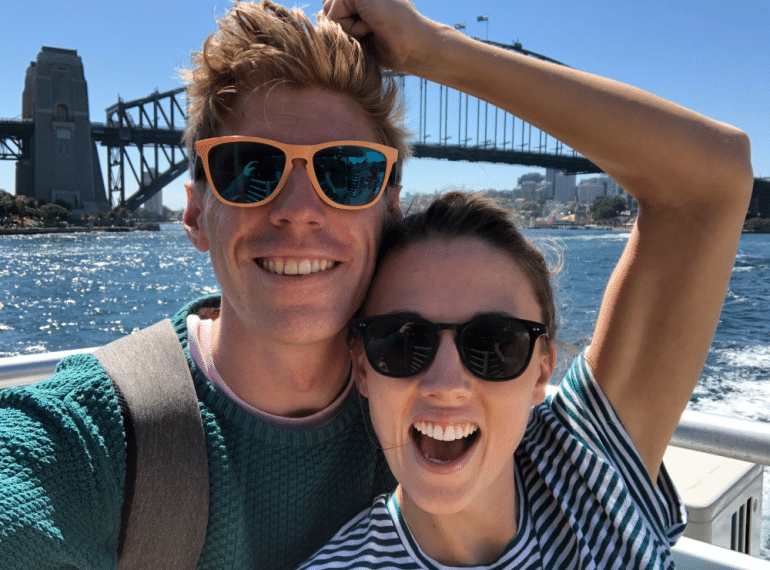
 Joe (OE 1997–2004) went on from QE to read Medicine at Nottingham. After graduating in 2009, he worked at some of the UK’s best-known hospitals, but also spent long periods in Australia, including 18 months in Melbourne as a junior doctor working in Accident & Emergency.
Joe (OE 1997–2004) went on from QE to read Medicine at Nottingham. After graduating in 2009, he worked at some of the UK’s best-known hospitals, but also spent long periods in Australia, including 18 months in Melbourne as a junior doctor working in Accident & Emergency.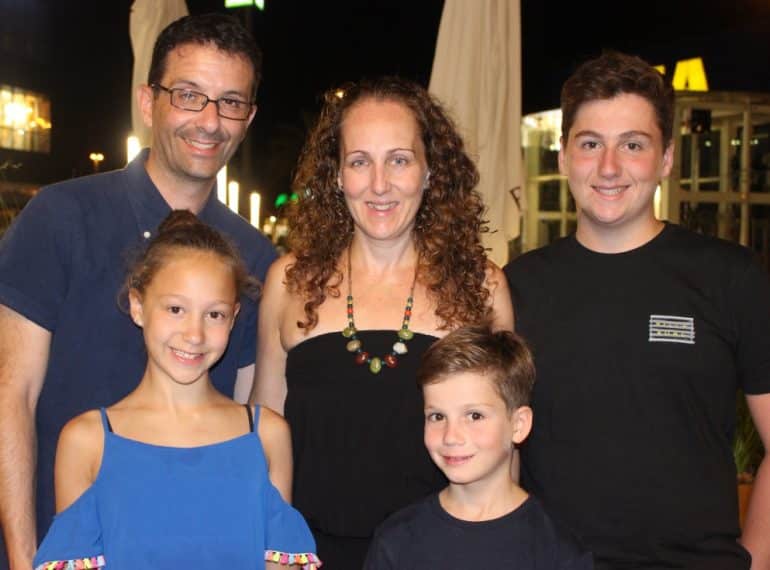
 Scott joined QE in the middle of Year 8 in 1987. “I had some magnificent teachers,” he says, mentioning especially Eric Houston (who retired as Second Master in 2010 and is a Foundation Governor), History teacher Mr Oulton and Dr John Marincowitz (who went on to become Headmaster in 1999, retiring in 2011). “I didn’t just learn from them academically, but I was also moulded by them as a young man. I’m very conscious of that and grateful for it.”
Scott joined QE in the middle of Year 8 in 1987. “I had some magnificent teachers,” he says, mentioning especially Eric Houston (who retired as Second Master in 2010 and is a Foundation Governor), History teacher Mr Oulton and Dr John Marincowitz (who went on to become Headmaster in 1999, retiring in 2011). “I didn’t just learn from them academically, but I was also moulded by them as a young man. I’m very conscious of that and grateful for it.” A member of Stapylton House in an era when Stapylton was on a winning streak, he was also a prefect: “I still have my tie in a memories box.”
A member of Stapylton House in an era when Stapylton was on a winning streak, he was also a prefect: “I still have my tie in a memories box.” On its website, the firm salutes him as its ‘search oracle’, highlighting his ‘photographic memory for partner moves (and for football trivia)’.
On its website, the firm salutes him as its ‘search oracle’, highlighting his ‘photographic memory for partner moves (and for football trivia)’.
 But the most memorable night of all came on 17th June 1965, when The Trekkas (pictured here at around the same date) had been booked to play support at Bowes Lyon House in Stevenage. “What we didn’t know was the name of the band we were supporting. All we knew was they came from West London.
But the most memorable night of all came on 17th June 1965, when The Trekkas (pictured here at around the same date) had been booked to play support at Bowes Lyon House in Stevenage. “What we didn’t know was the name of the band we were supporting. All we knew was they came from West London. The photo here shows a gig Martyn played at Goffs Oak while still at QE. He is pictured with fellow Elizabethan colleague Guy Hewlett (1954-1962), backing Tommy Moeller. Moeller later became the lead singer with Unit 4 plus 2, who had a No. 1 hit with Concrete and Clay.
The photo here shows a gig Martyn played at Goffs Oak while still at QE. He is pictured with fellow Elizabethan colleague Guy Hewlett (1954-1962), backing Tommy Moeller. Moeller later became the lead singer with Unit 4 plus 2, who had a No. 1 hit with Concrete and Clay.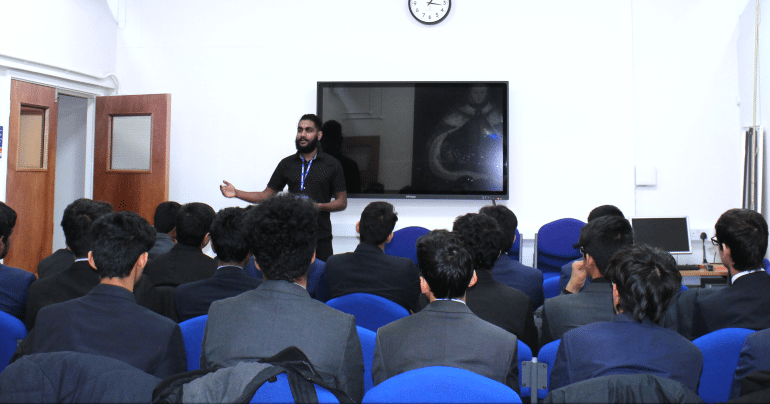
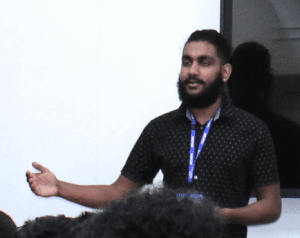 Valavan Ananthakumaraswamy OE (2009-2016), who chose to follow a mixed Liberal Arts programme for the first two years of his degree, told the current QE pupils that he had been particularly attracted by the wide range of subjects available through the US university system and by the closer relationships with professors.
Valavan Ananthakumaraswamy OE (2009-2016), who chose to follow a mixed Liberal Arts programme for the first two years of his degree, told the current QE pupils that he had been particularly attracted by the wide range of subjects available through the US university system and by the closer relationships with professors.